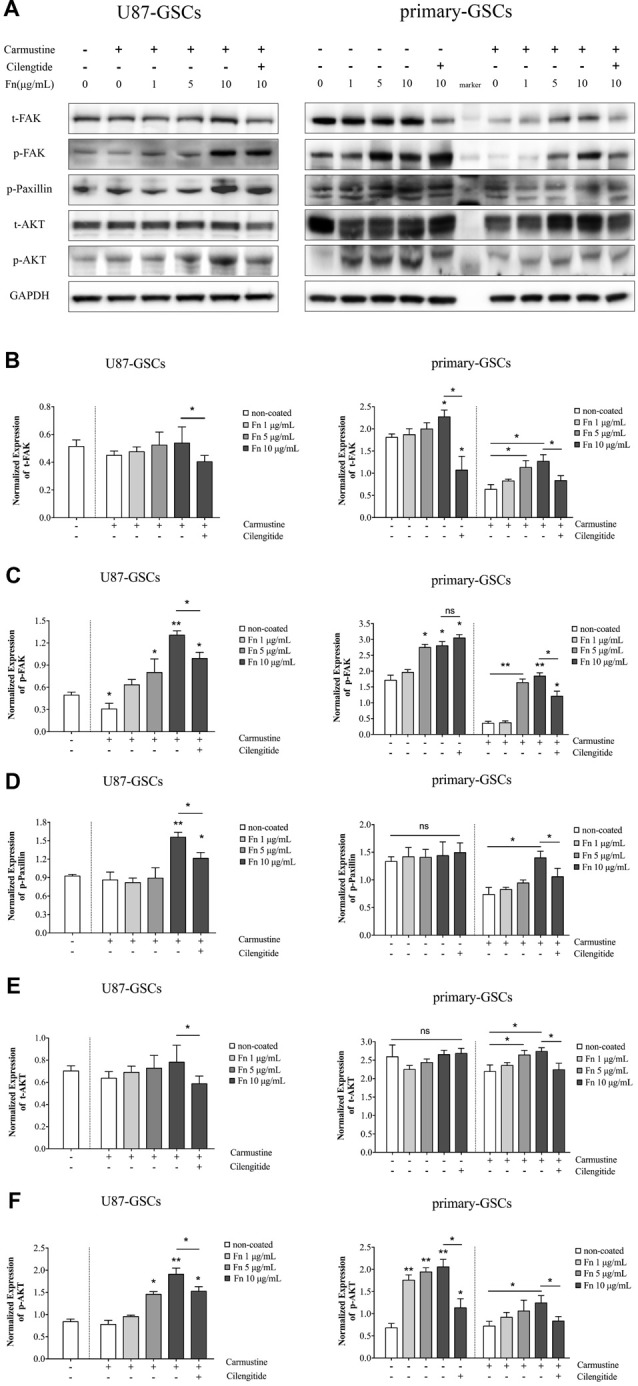Figure 6.

FN activated the focal adhesion kinase (FAK)/paxillin/AKT signaling pathway. (A–F) Western blotting indicated that for U87-GSCs, total focal adhesion kinase FAK and AKT expression were not affected by carmustine without cilengitide treatment, whereas cilengitide induced markedly lower FAK and AKT expression than that in the untreated 10 μg/mL FN group. Compared to untreated control, only p-FAK was markedly inhibited by carmustine in U87-GSCs grown in the absence of FN, whereas p-paxillin and p-AKT were not suppressed in U87-GSCs grown in the absence of FN, or U87-GSCs grown on 1 μg/mL FN. In contrast, U87-GSCs grown on 5 or 10 μg/mL FN showed an upregulation of p-FAK, paxillin and p-AKT. Moreover, there was a significant decline of p-FAK, paxillin and p-AKT with cilengitide treatment. For primary-GSCs without carmustine treatment, the expression of p-paxillin and total AKT was not affect by FN. Total FAK was elevated by primary-GSCs grown on 10 μg/mL FN, whereas p-FAK was elevated byprimary-GSCs grown on 5 or 10 μg/mL FN and p-AKT was elevated by primary-GSCs grown on 1, 5 or 10 μg/mL FN. Cilengitide induced markedly lower total FAK and p-AKT expression than that in the untreated 10 μg/mL FN group. The same trend as observed for U87-GSCs occurred when Primary-GSCs were treated with carmustine: primary-GSCs grown on 5 or 10 μg/mL FN showed significantly restored activation of t-/p-FAK and t-AKT compared to carmustine treated cells in the absence of FN, whereas 10 μg/mL FN restored activation of p-paxillin and p-AKT on a large scale. In addition, a marked decline in t-/p-FAK, p-paxillin and t-/p-AKT occurred with cilengitide treatment. *p < 0.05, **p < 0.01, n.s. not significant.
